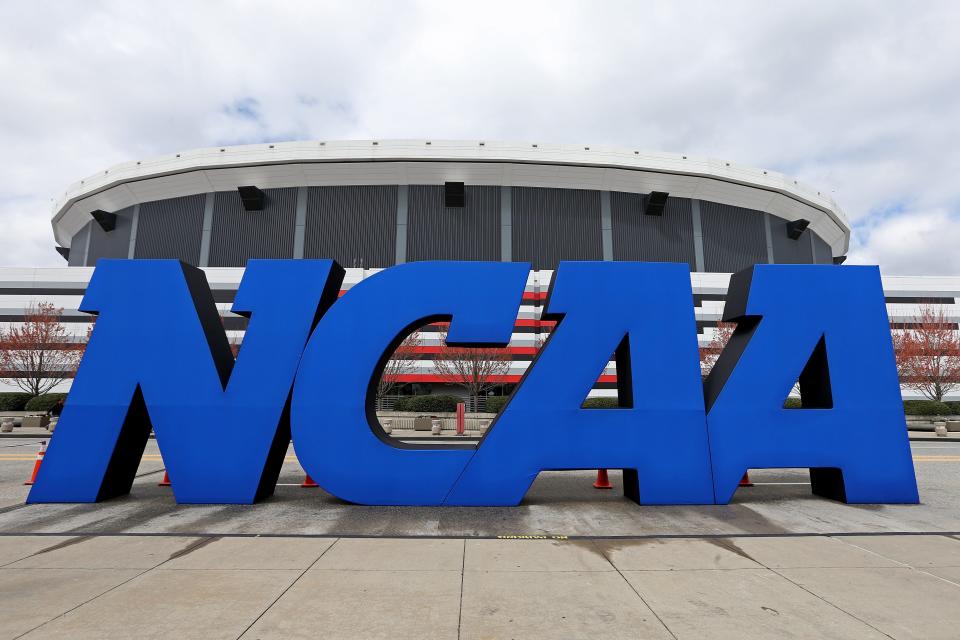NCAA scored first vs. Tennessee in NIL case. But don't mistake that for a final result.
The NCAA scored first against the Tennessee attorney general in hopes of upholding its rules regarding name, image and likeness benefits for college athletes.
A federal judge on Tuesday denied a temporary restraining order requested by the states of Tennessee and Virginia that would’ve paused those NIL rules.
But don’t mistake the NCAA's early lead for the final result.
Here’s what the ruling means for the federal lawsuit and the University of Tennessee.
SENATE TAKES ON NCAA Marsha Blackburn, Cory Booker join forces against NCAA amid Tennessee investigation

NCAA won first battle but not war
This is a small victory for the NCAA because it keeps NIL rules in place, at least for a few more days.
But there’s no time for the NCAA to celebrate. There will be an injunction hearing in Greeneville on Feb. 13, when NIL rules could be frozen until the case is decided.
Judge Clifton Corker made that distinction clear in his order.
“The court addresses only plaintiffs’ request for a (temporary restraining order) at this stage of the proceeding,” he wrote.
Tennessee Attorney General Jonathan Skrmetti requested emergency relief to halt NIL rules before Wednesday, the start of the Division I football regular signing period, when recruits can sign a letter of intent with a university.
But Corker said those requirements for urgency were not met.
If the injunction is granted, however, it would be a much bigger loss for the NCAA and make this restraining order obsolete. But if the NCAA also fends off the injunction, it will compound the states’ losses.
Judge pointed to obstacles ahead for NCAA
Speaking of that injunction, Corker appeared to indicate the NCAA faces an uphill battle to win the next round, specifically against charges that its NIL rules violate antitrust laws.
“Considering the evidence currently before the court, plaintiffs are likely to succeed on the merits of their claim under the Sherman Act (antitrust),” Corker wrote.
He said the “NCAA’s NIL-recruiting ban likely harms competition” and therefore is “anticompetitive.” Furthermore, he said the rules in question “likely foster economic exploitation of student-athletes”
Those are harsh words and a high hurdle for the NCAA to clear.
The suit also asserts the NCAA's NIL rules are unfair because athletes aren't allowed to negotiate NIL contracts or communicate with schools directly about NIL opportunities before enrolling or signing a letter of intent.
Corker agreed.
“The NCAA's NIL-recruiting ban is, in effect, ‘an agreement among competitors to refuse to discuss prices with (recruit) until after negotiations have resulted in the initial selection of (an institution),” Corker wrote. “… It appears to be anticompetitive.”
NCAA investigation into UT moves forward

Although the Tennessee attorney general’s lawsuit was never tied directly to the NCAA’s investigation into allegations that UT broke NIL rules, they were always related.
Since the NCAA held off this assault, at least for another week, UT should expect the investigation to continue. But the direction of the probe could hang in the balance.
If the injunction is denied, the NCAA could be emboldened to continue its investigation.
But if the injunction is granted, don’t be shocked if the NCAA pauses its probe or suddenly reduces its focus to minor allegations.
After all, would the NCAA seek to punish UT for breaking rules in the past that are unenforceable in the present? It certainly could, but that would be bold.
UT acknowledged the investigation exists, but it has not received a notice of inquiry.
So there’s still time for the investigation to heat up or cool down.
Adam Sparks is the Tennessee football beat reporter. Email adam.sparks@knoxnews.com. X, formerly known as Twitter@AdamSparks. Support strong local journalism by subscribing at knoxnews.com/subscribe.
Get the latest news and insight on SEC football by subscribing to the SEC Unfiltered newsletter, delivered straight to your inbox.
This article originally appeared on Knoxville News Sentinel: Unpacking Tennessee AG vs NCAA after judge blocks NIL restraining order
